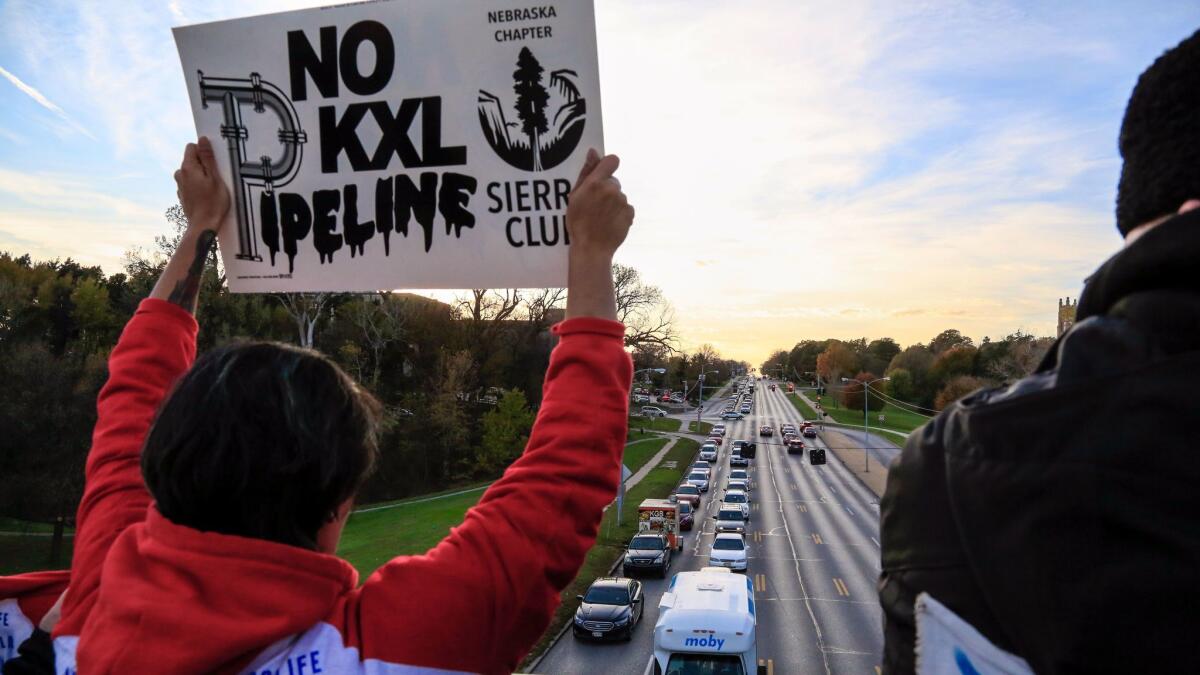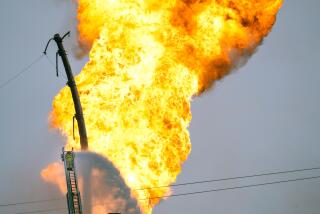Keystone pipeline leaks 210,000 gallons of oil in South Dakota

Reporting from AMHERST, S.D. — TransCanada Corp.’s Keystone pipeline leaked an estimated 210,000 gallons of oil in northeastern South Dakota, the company and state regulators reported Thursday.
Crews shut down the pipeline Thursday morning and activated emergency response procedures after a drop in pressure was detected resulting from the leak south of a pump station in Marshall County, TransCanada said in a statement. The cause was being investigated.
The Keystone pipeline is part of a 2,687-mile system that also is to include the proposed Keystone XL pipeline, which has faced persistent opposition from environmental groups, American Indian tribes and some landowners.
The Nebraska Public Service Commission will announce its ruling on the proposed Keystone XL oil pipeline route across the state on Monday after spending months evaluating arguments for and against the long-delayed project.
Officials don’t believe the recent leak affected any surface water bodies or threatened any drinking water systems from the spill onto agricultural land, said Brian Walsh, an environmental scientist manager at the South Dakota Department of Environment and Natural Resources, which has dispatched a staff member to the site.
“Ultimately, the cleanup responsibility lies with TransCanada, and they’ll have to clean it up in compliance with our state regulations,” Walsh said.
The pipeline transports crude from Alberta, Canada, to refineries in Illinois and Oklahoma, passing through the eastern Dakotas, Nebraska, Kansas and Missouri. It can handle nearly 600,000 barrels, or about 23 million gallons, daily. TransCanada says on its website that the company has safely transported more than 1.5 billion barrels of oil, or about 63 billion gallons, through the system since operations began in 2010.
TransCanada said in its statement that it expected the pipeline to remain shut down as the company responds to the leak. It did not offer a time estimate.
The federal Pipeline and Hazardous Materials Safety Administration didn’t immediately return an email requesting additional information from the Associated Press.
A leak and spill in southeastern South Dakota in April 2016 prompted a weeklong shutdown of the pipeline. TransCanada estimated that just under 17,000 gallons of oil spilled onto private land during that leak. Federal regulators said an “anomaly” on a weld on the pipeline was to blame. No waterways or aquifers were affected.
TransCanada said at the time that the leak was the first detected on the pipeline since it began operating, though there had been leaks at pumping stations. One of those leaks happened in southeastern North Dakota in May 2011, when 14,000 gallons spilled after a valve failed at a pumping station near the South Dakota border.
President Trump issued a federal permit for the project in March even though it had been rejected by the Obama administration. The project has received needed approvals in states between Alberta and Nebraska.
More to Read
Sign up for Essential California
The most important California stories and recommendations in your inbox every morning.
You may occasionally receive promotional content from the Los Angeles Times.










